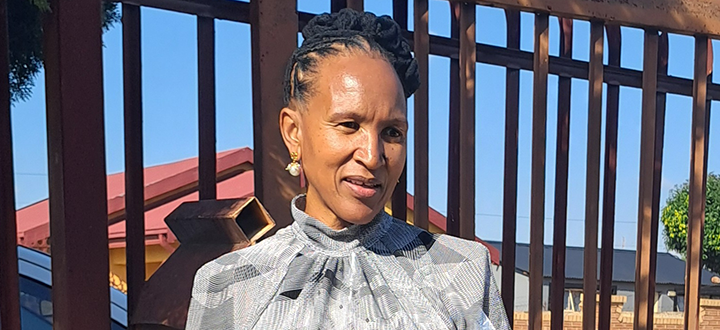News & Events
Koma e wetse: When tradition meets the harsh realities of modern livelihoods

Mampete Jemina Mookeng
Mampete Jemina Mookeng holds an MA in Public Health and a PhD in Sociology, both from Unisa. In this article, she explores the juxtaposition of traditional customs and the complex realities that young people face today.
As winter arrives, so too does the traditional initiation season – ‘koma e wetse’. For many young Black men across South Africa, this time represents a deeply respected cultural rite of passage, marking the transition into manhood. Rooted in heritage, identity, and shared values, koma (traditional initiation) has long held spiritual and generational significance. Yet in the context of today’s economic pressures, the impact of this custom on the lives and livelihoods of young initiates cannot be ignored. In a country grappling with high youth unemployment, the intersection between tradition and economic participation deserves closer attention, particularly for those who are already vulnerable.
Cultural honour, interrupted opportunity
Traditional initiation often requires young men to withdraw from daily life for several weeks. During this time, they are typically disconnected from work, studies, and digital communication. While culturally necessary and socially affirmed, this withdrawal can come at a cost, particularly for those studying, job-seeking, or employed in temporary, informal, or entry-level positions. Many opportunities, such as short-term contracts, internship offers, stipend collection, or even university assessments, are time-bound. A young man’s absence during koma may unintentionally close doors that are already difficult to access due to broader structural inequalities. The expectation to attend koma, while grounded in honour and identity, may place additional strain on families who already carry the weight of financial insecurity. Parents or guardians may find themselves covering both the cost of the ritual and the loss of an extra income earner, especially where the initiate had been working to contribute at home.
Reflections from health and sociological research
Insights from research into the health-seeking behaviours of Black men in public primary health care settings reveal that barriers such as poor quality of care, long waiting times, and stigma already discourage many from engaging openly with formal systems. During the initiation period, these barriers may be compounded by silence, secrecy, and an avoidance of medical intervention, particularly in the case of post-initiation health concerns. While some communities may have taken steps to improve safety, hygiene, and support during and after initiation, broader integration with health and socioeconomic systems remains limited. In some cases, young men return from koma not only to physical recovery but also to a disrupted academic or work trajectory, without formal catch-up support or reintegration mechanisms.
Toward balanced cultural participation
There is a need to reflect as communities and institutions: How can we uphold and protect the sacredness of koma while also acknowledging the complex realities that young people face today?
Some possible considerations include:
- Scheduling alignment between initiation periods and academic calendars to reduce long-term disruption
- Community-based career guidance or orientation sessions after koma to support young men’s re-entry into education or work
- Cultural leave policies or informal work agreements to protect initiates’ positions or opportunities during their absence
- Health education to support safe practices and post-initiation care, without undermining traditional knowledge
This is not a question of choosing between culture and modernity. It is about asking how we can live in both worlds with dignity, wisdom, and shared responsibility.
‘Koma e wetse’ is a statement that carries weight, tradition, and pride. But alongside the cultural affirmation it brings, it also raises questions about the unintended consequences young Black men face navigating economic uncertainty. As communities evolve, the dialogue between tradition and transformation must continue, with the intention not to diminish our roots, but to protect our future.
* The views and opinions expressed in this article are those of the author and do not necessarily reflect the views or positions of the University of South Africa
Publish date: 2025-07-02 00:00:00.0

